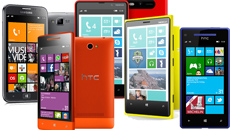Although the immediate commercial future of Google Glass appears bleak, a series of apps to be showcased here this coming weekend and deployable on that wearable computer provide a glimpse into its long-range potential.
One example is "Glass Genius", an application created at the University of Southern California Annenberg School for Communication and Journalism, where over the past three months, 11 students experimented with the Google Glass eyewear to create a useful tool for media professionals.
"It was a 15-week 'hackathon' (software production marathon)," web journalism professor Robert Hernandez, a fan of new technologies who has uploaded the results of his pioneering class to the website Glassjournalism.io, told Efe news agency in an interview.
"Glass Genius" consists of voice-recognition software linked to content created specifically for viewing on the tiny 640 x 360 pixel screen built into the right lens of the head-mounted product.
When the application is active, the screen projects images or text related to words said either by the Google Glass user or another speaker, giving the former access to detailed information on the topic at hand.
In its test phase, Hernandez and his team loaded the system with information about the Ebola virus and tested the application on volunteers, who, thanks to the glasses, came across as knowledgeable on the subject.
"Think of it as an external brain at your disposal," Hernandez said.
Tests conducted on Glass Genius have shown its potential as an interviewing aid, for example, but also have demonstrated that the app is far from infallible.
Hernandez acknowledged that more time was needed to work out the kinks in the software but he said he was satisfied with the results.
"We're excited that we were able to produce something. That's nice, but the purpose of the class was to have three types of students working together," he said.
One-third of those taking part in the hackathon were journalism students, while another third consisted of software developers and the remainder were a mixture of young people from different fields of study, including public relations and web development.
The class will present its results for the first time at an event Saturday at USC that will also showcase other apps developed for use with Google Glass, which was first unveiled in 2012 by the Mountain View, California-based tech giant but has failed to gain broad consumer appeal in part due to its hefty price tag of $1,500 per device.
Those other Google Glass apps include first person point of view videos showing the actions of athletes, hair stylists and magicians and a demonstration of how to use the Spritz speed-reading programme.





